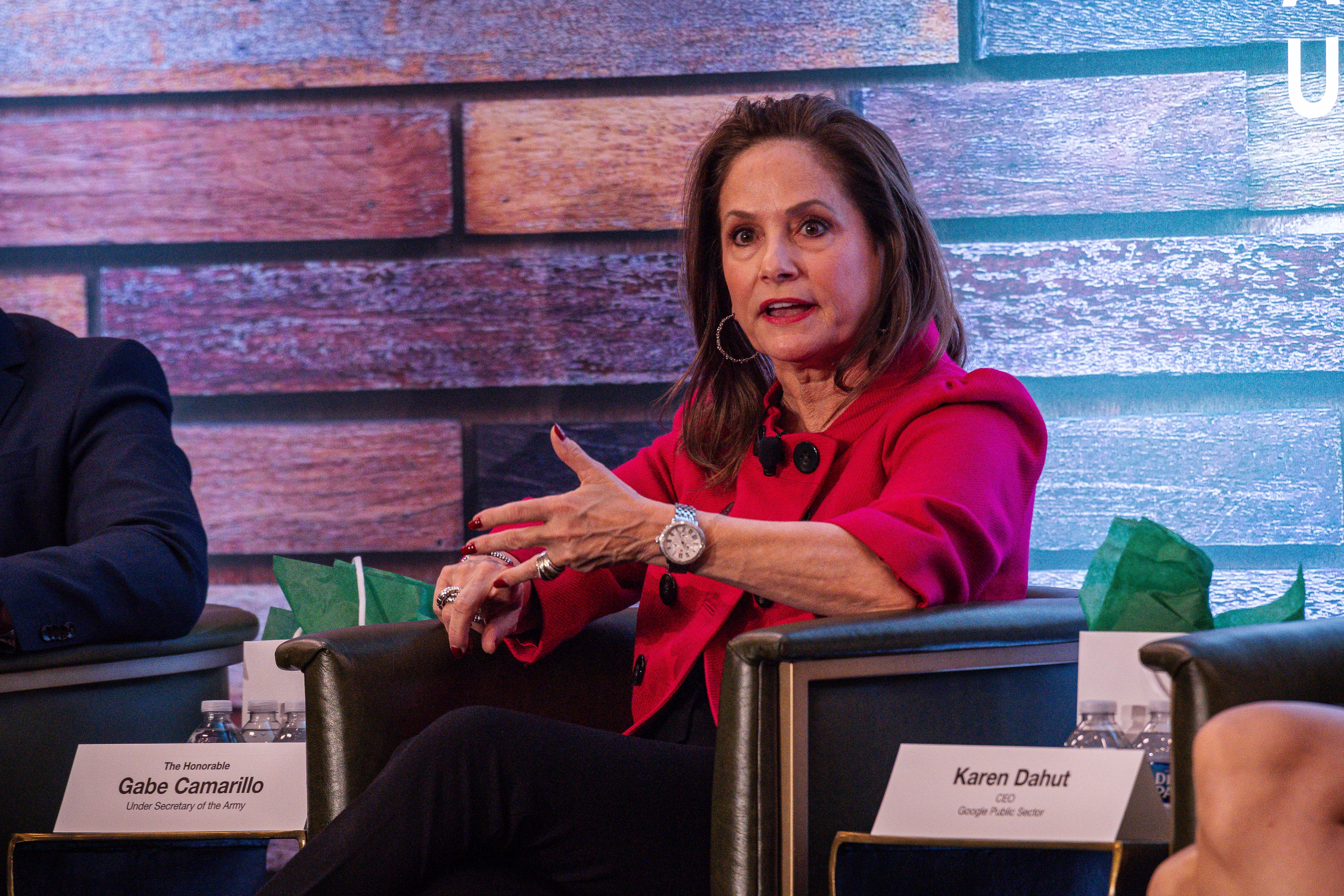


Pentagon eyes successor to Joint Warfighting Cloud Capability contract
"We are firmly committed to multi-cloud, multi-vendor," Pentagon CIO John Sherman said, "and this is what we’re going to be doing moving forward."

Aging IT burdens Pentagon leaders seeking change, Google’s Dahut says
Karen Dahut was named CEO of Google Public Sector in September 2022. She previously led defense ventures at Booz Allen Hamilton.

Army CIO Garciga forecasts cloud growth following ‘really hard sprint’
The U.S. Department of Defense is tapping the digital ether to ensure information is available when and where it’s most needed.

Balloon-tracker Synthetaic partners with Microsoft for cloud power
Synthetaic said the cloud resources will empower its RAIC tool, which lets users mine vast collections of imagery for specific objects.
More Stories

US Air Force moves closer to awarding Cloud One Next contract
Cloud One Next, or C1N, will emphasize zero-trust cybersecurity and identity, credential and access management, an Air Force official said.

First ‘secret’ task orders received for Pentagon’s $9B cloud contract
Pentagon CIO John Sherman likened the $9 billion Joint Warfighting Cloud Capability to a U.S. Navy carrier strike group — powerful and versatile.

US Air Force shifting hundreds of computer apps to the cloud
The U.S. Air Force launched Cloud One years ago and has sought industry input on its successor, Cloud One Next, or C1N.

US Navy needs seamless ‘virtual cloud,’ cyber leaders say
Navy vessels dot waters the world over and are expected to play a critical role in a conflict with China or Russia.
Ex-Navy CIO Weis joins Google Public Sector as managing director
Aaron Weis left his job with the U.S. Department of the Navy this month.
Pentagon close to making first awards on $9 billion cloud contract
The Pentagon in December tapped Amazon, Google, Microsoft and Oracle for its highly anticipated Joint Warfighting Cloud Capability contract.
US military services exchanging cloud-computing wisdom amid JADC2 push
The Army is expected to spend some $290 million on cloud uptake in the coming months, amid a push service officials dubbed the “year of action.”
US Army to spend $290 million on cloud uptake in coming months
The Army has already migrated hundreds of legacy applications to the cloud.
Cloud-friendly Air Force has eyes on Pentagon’s JWCC contract
CTO Jay Bonci said U.S. defense leaders "have to think about cloud as being a part of a resilience baseline."
Pentagon wants competition within $9B Joint Warfighting Cloud contract
The Pentagon on Dec. 7 picked Amazon, Google, Microsoft and Oracle for the highly anticipated cloud computing deal.
Amazon, Google, Microsoft and Oracle picked for $9B JEDI successor
The selections for the Joint Warfighting Cloud Capability, or JWCC, were made public Wednesday in a list of contracts published by the Pentagon.
US Air Force seeks industry input on Cloud One successor contract
The teasing of Cloud One Next, or C1N, comes as the Defense Department readies a $9 billion deal known as the Joint Warfighting Cloud Capability.
Pentagon closing in on $9B cloud contract award after scuttling JEDI
JWCC work is meant to connect the military’s most remote edge with its farthest headquarters, all while bridging classifications and other sensitivities.
The multi-cloud multiverse: How the Pentagon can achieve AI success
Many government agencies are overcoming these challenges using technologies such as data virtualization to implement a logical data fabric approach capable of ensuring trusted data access and sharing.
By Bill Sullivan



